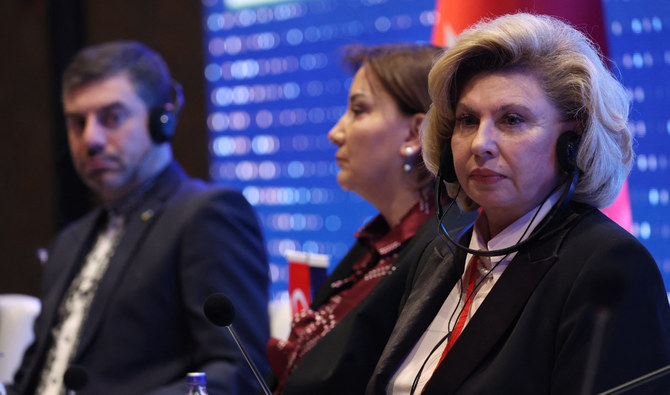LONDON: The ban on Palestine Action has led to people in the UK being wrongly labeled as extremists, and the anti-terrorism Prevent program risks being overwhelmed, a member of the Home Office’s homeland security group has warned.
Prevent duty, established in 2015, mandates certain British authorities, such as education and health, to report concerns about individuals who are vulnerable to radicalization.
The official, who works closely with Prevent, told The Guardian that the proscription of Palestine Action has confused counterterrorism police, officials, schools, and hospitals. They expressed concern that individuals supporting Palestine advocacy, but not Palestine Action, are wrongly labeled as extremists, and that supporters of Palestine Action are referred to Prevent despite posing no threat.
Co-founder of Palestine Action Huda Ammori is suing former Home Secretary Yvette Cooper this week for her decision to designate the group under anti-terror laws in July.
“I’m concerned about a surge in referrals to the Prevent system that might have a link to Palestine advocacy in light of the fact that this very high-profile group is now proscribed, and the confusion there might be on the frontline in schools and healthcare settings and all the other places that are expected to make Prevent referrals.
“I’ve heard senior counterterrorism police people say that they are already seeing on the frontline concerns about this come up and I’m aware of testimonies from Prevent leads at local authorities where they are also concerned about the impact of this on their area and confusion about whether certain cases should be referred to Prevent or not.”
Referrals to the anti-terrorism program rose by 27 percent in the year to March 2025, marking the highest number since records began. The official also expressed concerns that Prevent could be “overwhelmed” by referrals related to Palestine Action.
“We have already seen police officers, let alone frontline Prevent practitioners, mistakenly arrest or interfere with people for supporting Palestine, not supporting Palestine Action.
“There is a risk that what’s now the crime of support for Palestine Action might lead to the Prevent system becoming an unwitting sort of gateway for people to mistakenly be criminalized, especially young people who don’t know the law and they don’t know the consequences of expressing what might sound like — or may actually be — support for a group that, overnight, has become proscribed.”
The official who spoke to The Guardian expressed concern that the ban had undermined the credibility of essential counterterrorism efforts.
“The proscription has damaged trust in the government more widely and Prevent specifically — so potentially eroding Prevent’s effectiveness to tackle the real issues even further,” they said.
A spokesperson for the Home Office said: “We do not comment on anonymous briefings.
“Supporting Palestine is not the same as supporting a proscribed terrorist organization. There are many lawful ways to express support for Palestinian rights and sovereignty without being a member of, or associated with, this harmful group.”
Palestine Action was banned after an alleged attack on two planes at RAF Brize Norton in June, causing £7 million ($9.3 million) in damage, for which five members face vandalism charges. Moreover, 24 individuals face charges over a break-in at the UK site of the Israel-based defense firm Elbit Systems in Bristol that occurred in August.
Supporting Palestine Action is now a criminal offense in the UK, punishable by up to 14 years in prison.
















